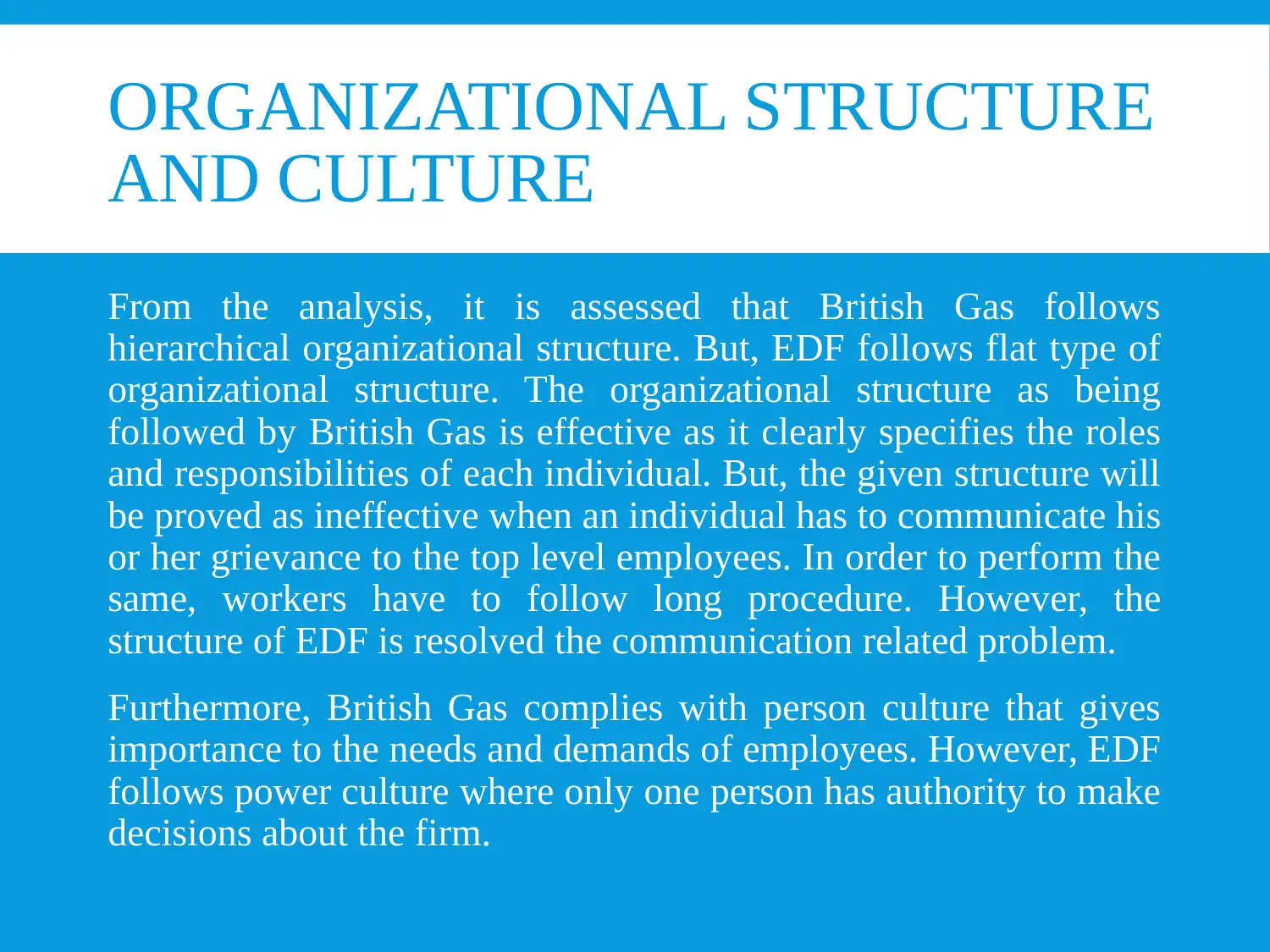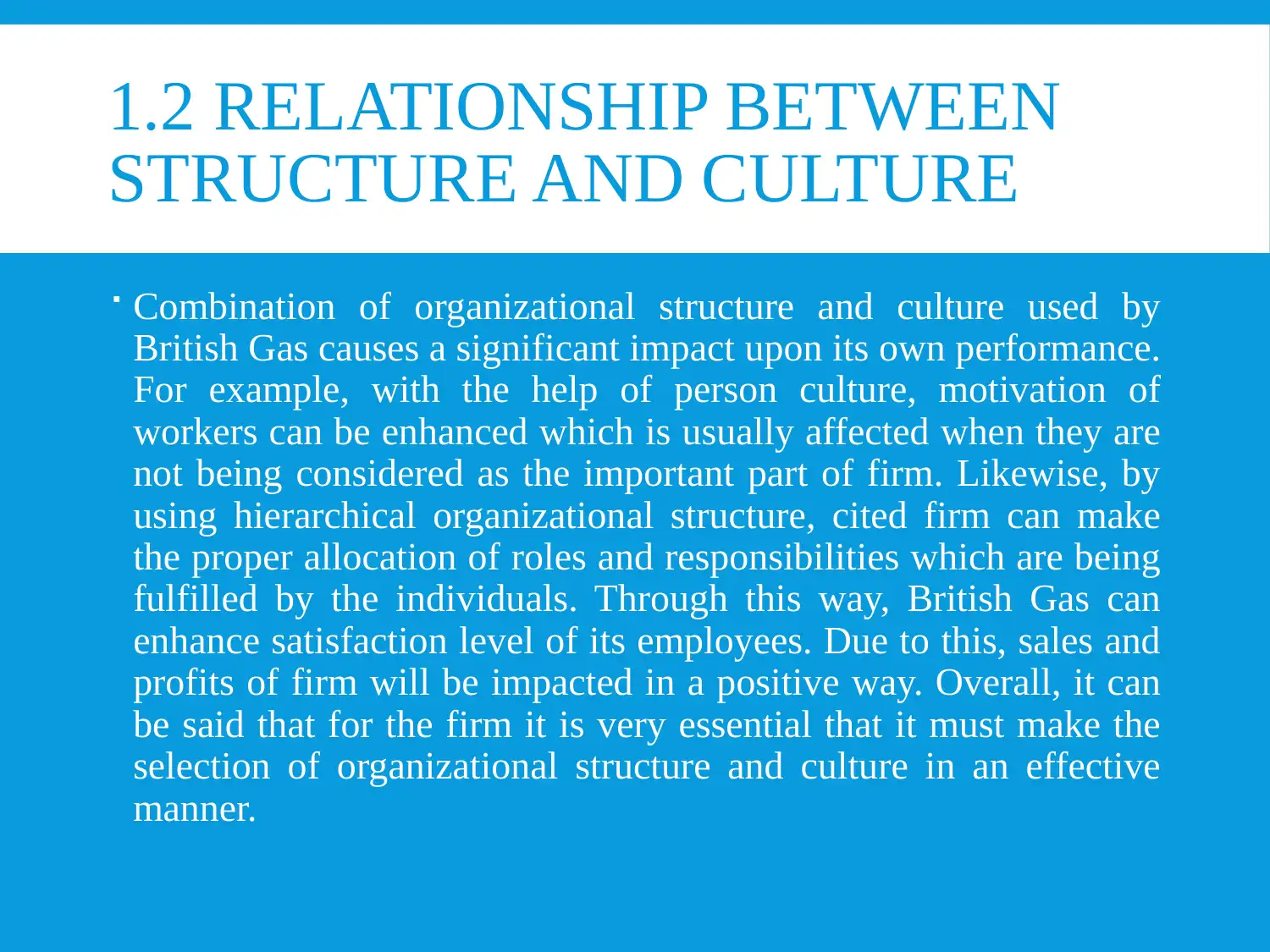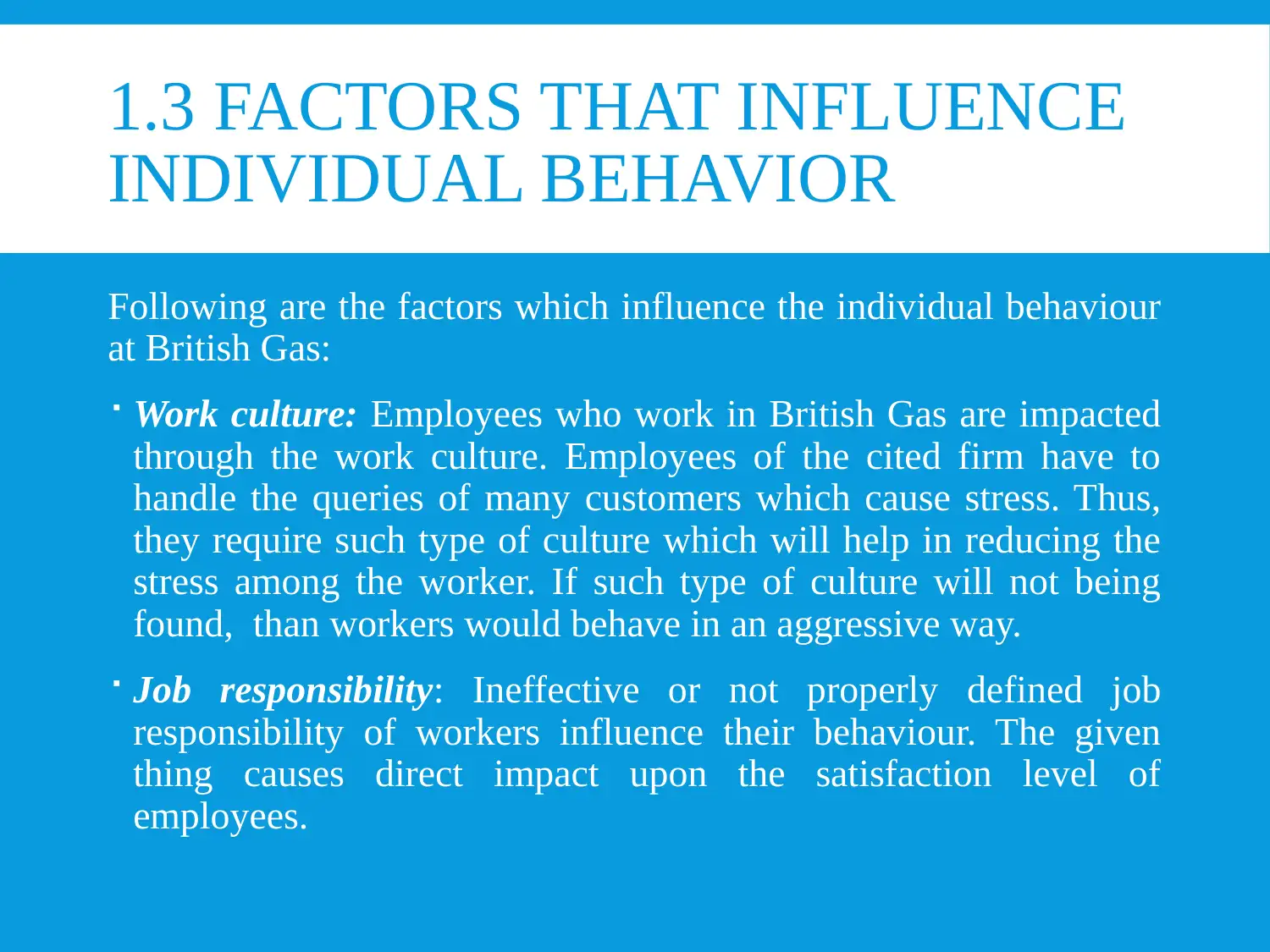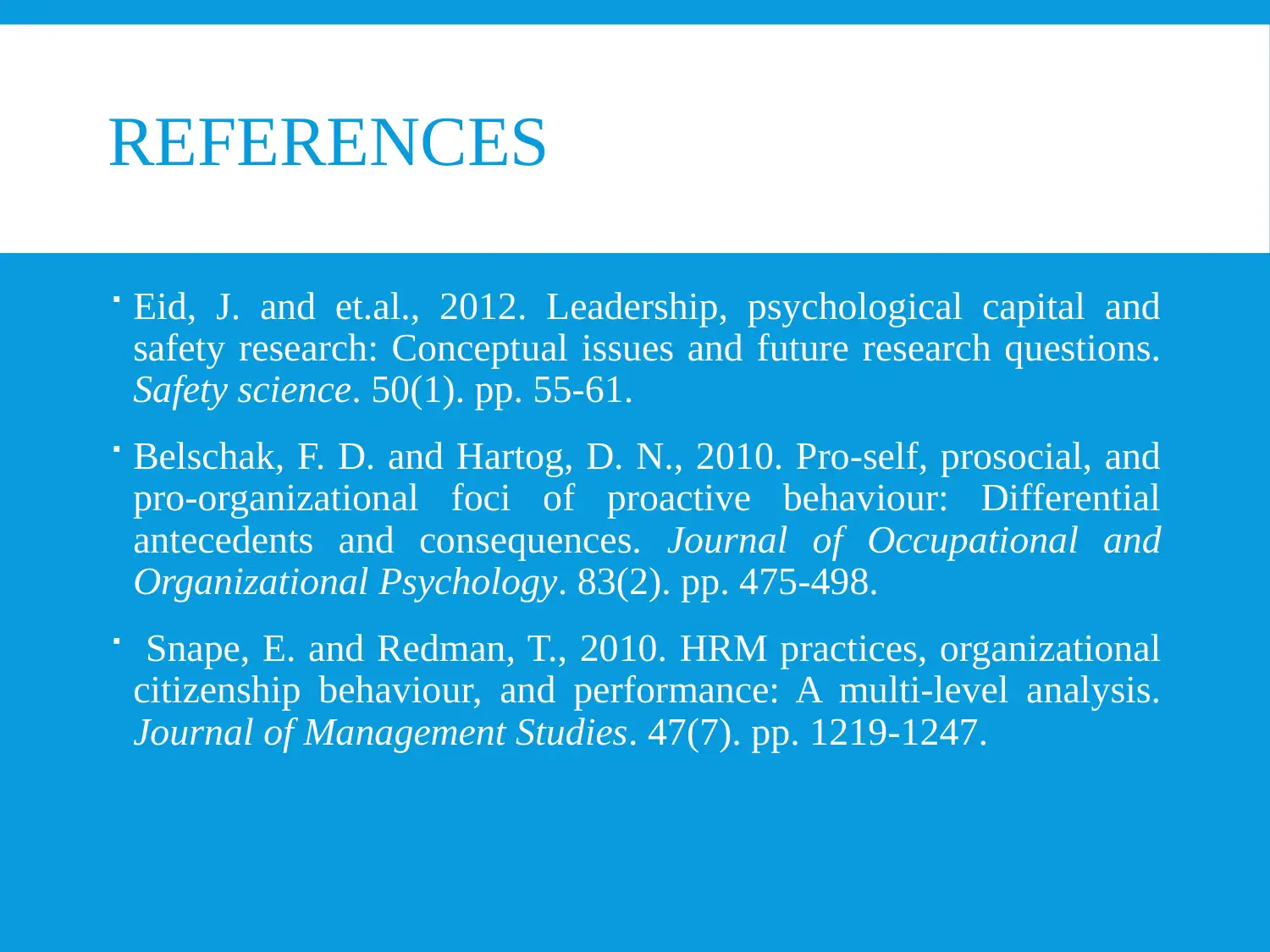British Gas: Analyzing Structure, Culture, and Individual Behavior
VerifiedAdded on 2023/04/22
|6
|540
|242
Report
AI Summary
This report provides an analysis of British Gas's organizational structure and culture, comparing it with EDF's flat structure and power culture. It assesses the effectiveness of British Gas's hierarchical structure and person culture, highlighting the impact on communication and employee motivation. The report also examines factors influencing individual behavior at British Gas, such as work culture and job responsibility, and their effects on employee satisfaction and overall performance. The analysis emphasizes the importance of aligning organizational structure and culture to enhance employee motivation, satisfaction, and ultimately, the firm's sales and profits. Desklib offers a variety of resources for students, including similar solved assignments and past papers.
1 out of 6













![[object Object]](/_next/static/media/star-bottom.7253800d.svg)